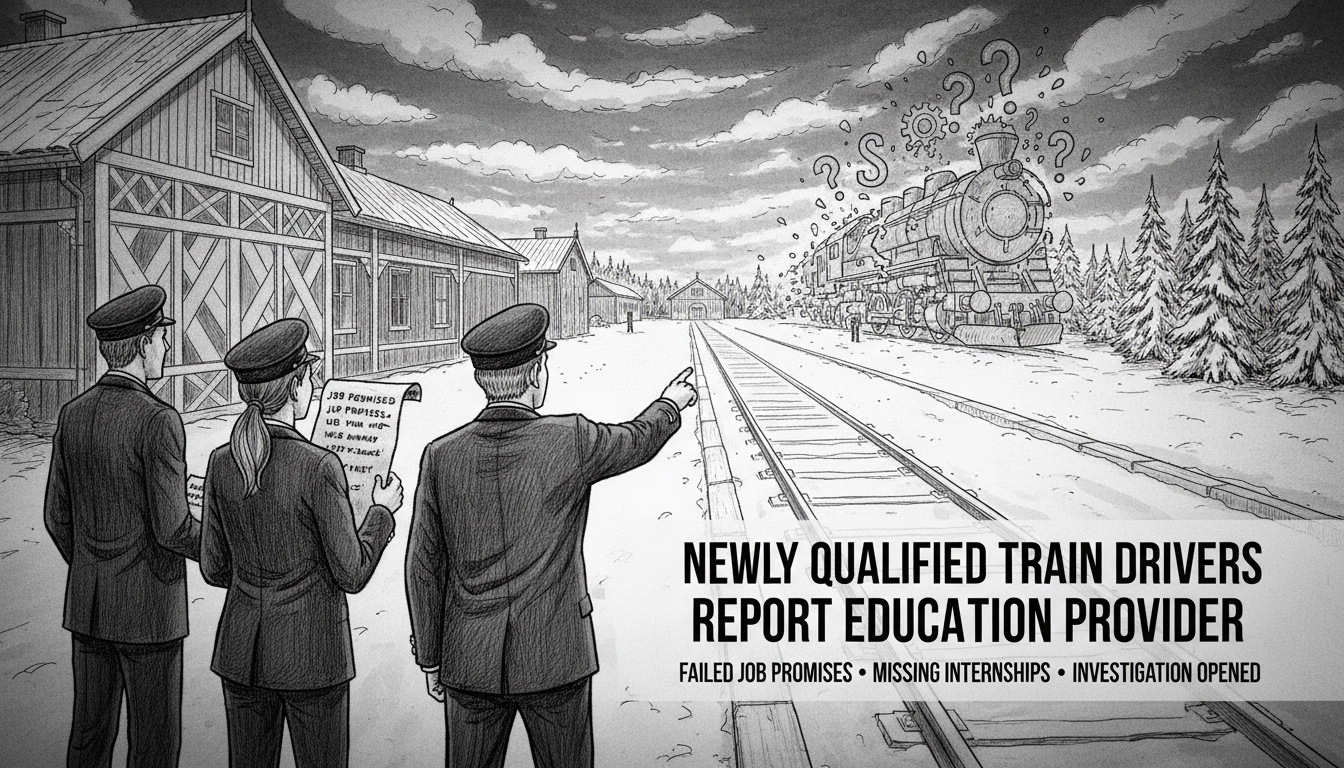Freshly graduated train drivers in Sundsvall have filed a formal complaint against their education provider. They completed their training program just weeks ago but now face unemployment and unmet internship promises. Multiple students allege the program's marketing misrepresented job prospects and failed to deliver guaranteed practical placements.
One newly qualified driver expressed deep frustration about the situation. He described feeling misled by promises that didn't match reality.
Education coordinator Frida Gustafsson from ProTrain disputed these claims. She stated all students received internship offers. Her position maintains that the organization's responsibility ends when students decline offered positions.
The graduate also questioned the continued promotion of train driving as a high-demand profession. He suggested prospective students reconsider enrolling until market conditions improve for new drivers. His warning comes amid growing concerns about oversaturation in the railway employment market.
This complaint follows recent regulatory action against another Swedish train driver education provider. Authorities prohibited TCC from continuing operations in Kristinehamn and Nässjö due to serious deficiencies in their program management.
The Swedish National Agency for Higher Vocational Education has opened an investigation into ProTrain's handling of practical internships. The formal inquiry begins this November and will examine whether the organization fulfilled its obligations to students.
Sweden's vocational education system typically guarantees practical workplace experience through LIA placements. These internships form a crucial bridge between classroom learning and employment. When providers fail to deliver these placements, students face significant barriers to entering their chosen professions.
The railway industry has experienced fluctuating demand for new drivers in recent years. Infrastructure investments and changing transport patterns have created uncertainty in hiring forecasts. This case highlights the challenges vocational students face when educational promises collide with economic realities.
International readers should understand that Swedish vocational programs operate under strict quality assurance frameworks. The current investigation will determine whether ProTrain violated its contractual and regulatory obligations. The outcome could influence how vocational programs market themselves and manage student expectations across Nordic countries.
The situation raises important questions about accountability in vocational education. Students invest substantial time and resources into training programs with expectations of employment outcomes. When these expectations aren't met, the consequences extend beyond individual disappointment to broader trust in the education system.
The investigation's findings could prompt reforms in how vocational programs advertise job prospects and secure practical placements. This case serves as a cautionary tale for prospective students considering specialized training in competitive job markets.

